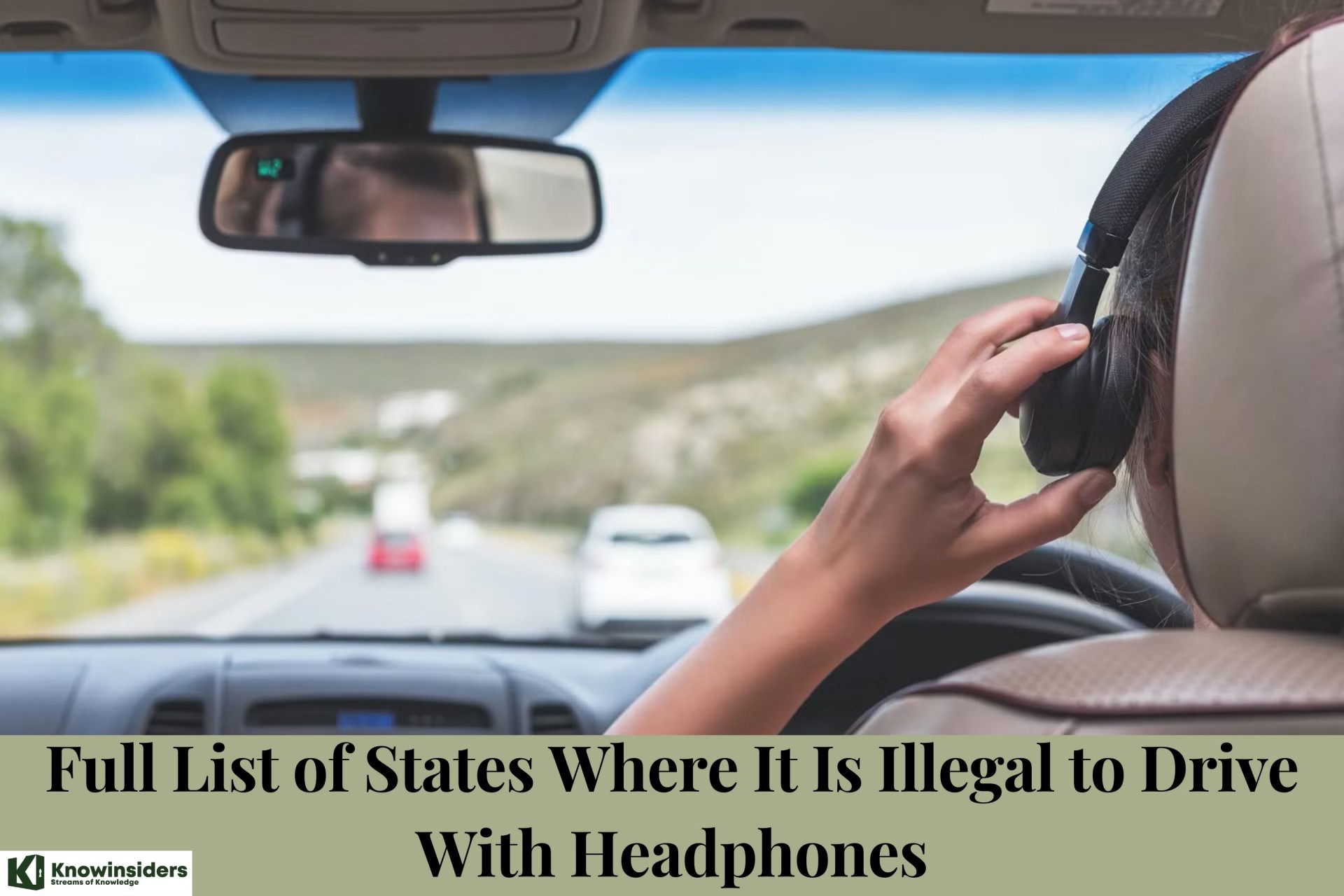When Did Abortion Become Legal in America: Amazing Facts, Pros and Cons
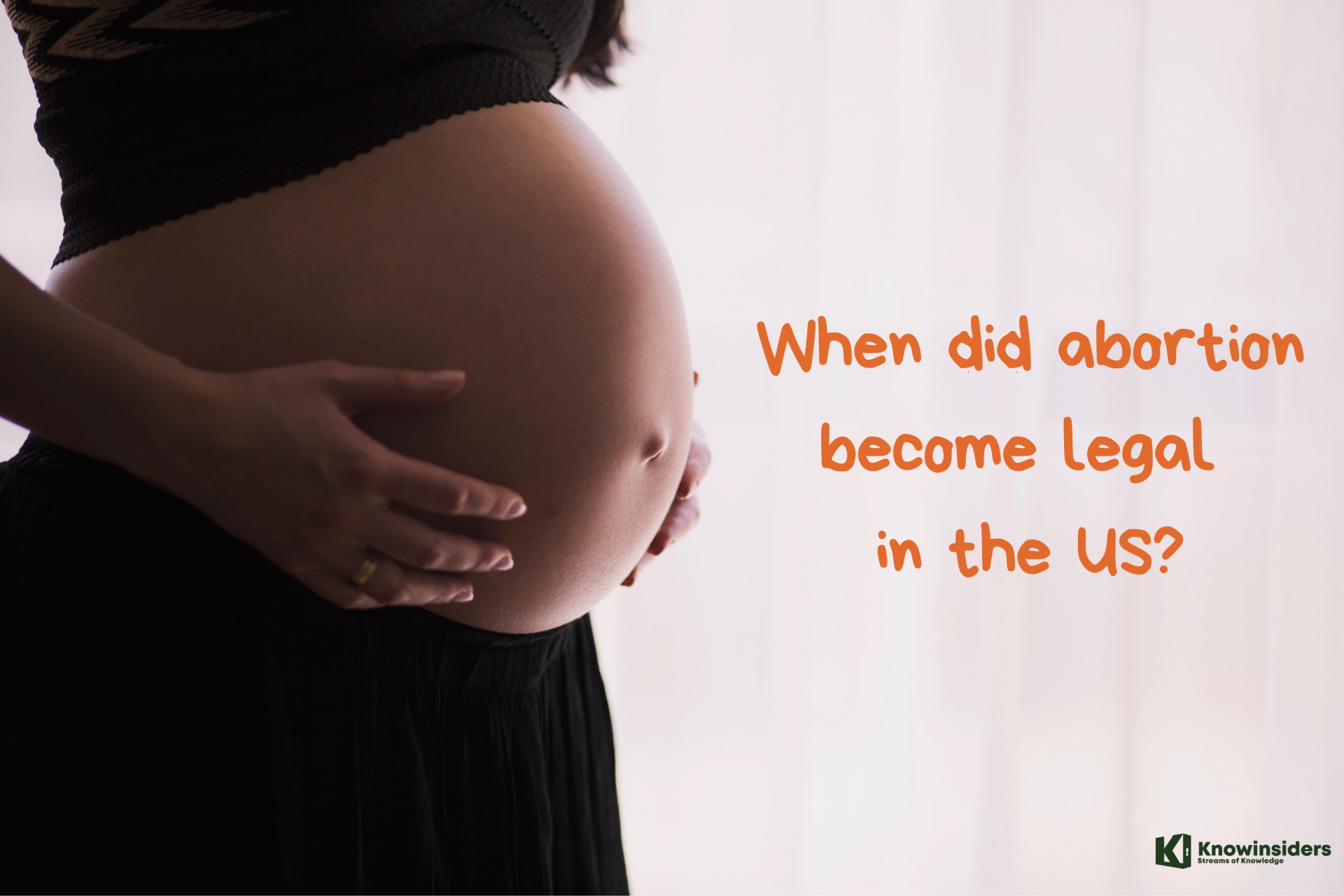 |
| Little-Known Facts About When It Became Legal To Get Abortion In The US. Photo KnowInsiders |
In the last three decades, countries around the world have made it easier to legally get an abortion. In some parts of the United States, however, it’s gotten harder. The following article will give you insights about when abortion law was passed in the US.
Abortion definition in the US legal system
Abortion is defined as the termination of pregnancy by various methods, including medical surgery, before the fetus is able to sustain independent life. In Roe v. Wade, 410 U. S. 113 (1973), the U. S. Supreme Court determined that the Constitution protects a woman's decision whether or not to terminate her pregnancy. Specifically, the Court ruled that during the first trimester of pregnancy the state cannot bar any woman from obtaining an abortion from a licensed physician.
During the second trimester, the state can regulate the abortion procedure only to protect the woman’s health. In the third trimester, the state may regulate to protect fetal life, but not at the expense of the woman’s life or health.
When did abortion become legal in the US?
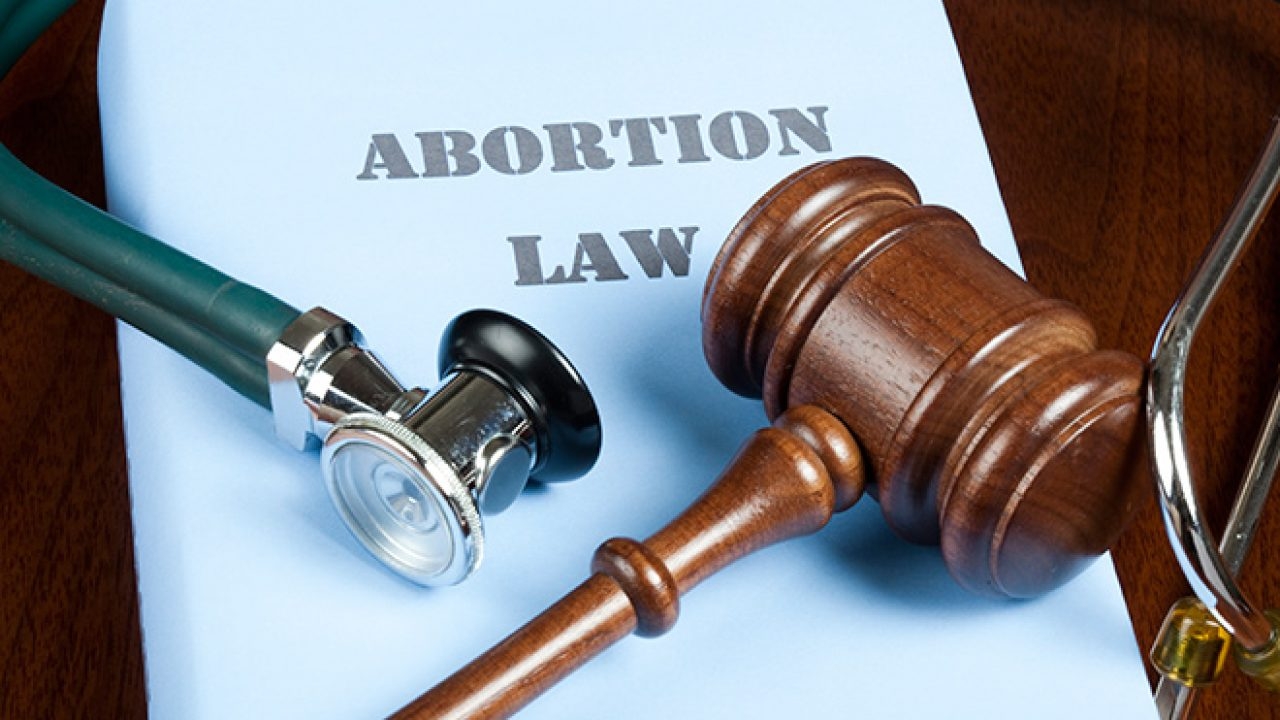 |
| Photo Getty |
In 1973 the US Supreme Court ruled that abortion was legal in the landmark case Roe v. Wade. Anti-choice activists and politicians have been working to overturn this decision ever since, and we’re now seeing the fruits of that labour. The attacks on Roe also ramped up when President Trump appointed two new judges to the Supreme Court, both of whom have expressed anti-choice views.
But it’s important to recognize that the law is not the only factor that determines whether people can access abortions.
Since 1973, anti-choice activists have been steadily chipping away at abortion access. They have done this partly by creating financial and logistical barriers which make it difficult or impossible for people to get abortions – despite what the law says.
History dated back centuries ago
In the 18th century and until about 1880, abortions were allowed under common law and widely practiced. They were illegal only after "quickening," the highly subjective term used to describe when pregnant women could feel the fetus moving, Reagan said.
"At conception and the earliest stage of pregnancy, before quickening, no one believed that a human life existed; not even the Catholic Church took this view," Reagan wrote. "Rather, the popular ethic regarding abortion and common law were grounded in the female experience of their own bodies."
Though it is considered taboo in Christian traditions, until the mid-19th century, "the Catholic Church implicitly accepted early abortions prior to ensoulment," she explained. "Not until 1869, at about the same time that abortion became politicized in this country, did the church condemn abortion; in 1895, it condemned therapeutic abortion," meaning procedures to save a woman's life.
| Abortions would become criminalized by 1880, except when necessary to save a woman's life, not at the urging of social or religious conservatives but under pressure from the medical establishment -- and the very organization that today speaks out in support of abortion access, Reagan explained. |
In the Supreme Court's latest case, the American Medical Association voiced disapproval of the Texas abortion law when it joined the amicus brief led by the American College of Obstetricians and Gynecologists. Laws that impede the freedom of physicians to provide care using their best medical judgment are not supported by the AMA.
The association, an AMA spokesman said, "seeks to limit government interference in the practice of medicine and oppose government regulation of medicine that is unsupported by scientific evidence."
Back when it was still a fledgling organization, however, it began a crusade in 1857 to make abortion illegal, Reagan wrote. The impetus was manifold. Some of it came "out of regular physicians' desire to win professional power, control medical practice, and restrict their competitors," namely midwives and homeopaths.
But this was also a time, Reagan said, in which women were lobbying for entrance into Harvard Medical School, in part so they could pursue work in obstetrics and gynecology.
The force behind this 19th-century AMA anti-abortion campaign was Dr. Horatio Storer, a Harvard Medical School graduate who dedicated much of his practice to OB-GYN work before he died in 1922.
The crusade proved to be a form of backlash against the shifting aspirations of women. It was "antifeminist at its core," Reagan wrote.
| The AMA pushed for state laws to restrict abortions, and most did by 1880. Then the Comstock Law, passed by Congress in 1873, banned items including abortion drugs. 'I'm an abortion travel agent' and other tales from Texas' new desert But before abortions were banned, a woman known as Madame Restell ran abortion businesses from New York to Philadelphia and Boston. Her main clientele, Reagan wrote, were "married, white, native-born Protestant women of upper and middle classes." Abortions, birth control and general efforts to manage the timing of pregnancy meant birth rates among white women were falling just as immigrants streamed into the United States. And the idea of being out-populated by "others" worried some anti-abortion activists like Storer. He argued that whites should be populating the country, including the West and the South. Better them than blacks, Catholics, Mexicans, Chinese or Indians, he said, according to Reagan. "Shall these regions be filled by our own children or by those of aliens? This is a question our women must answer; upon their loins depends the future destiny of the nation," Storer said, according to Reagan's research. "White male patriotism," she wrote, "demanded that maternity be enforced among white Protestant women." |
An ever-growing number of restrictions
According to the Guttmacher Institute, since the 1973 Roe v. Wade decision, states have passed more than 1000 abortion restrictions. More than a third of them were enacted between 2011 -2019, accelerating after the election of President Barack Obama. These laws ban abortion after a particular gestational age or based on sex, race, or genetic anomaly, ban specific abortion methods, impose biased counseling and waiting periods, require unnecessary ultrasounds, restrict access to medication abortions, limit who can provide abortion health care, and impose targeted regulation of abortion providers (TRAP) regulations.
It’s already hard for many people to get abortions in the US
Take Alabama as an example. In May, Alabama’s governor signed into law a draconian bill that could punish doctors who perform abortions with life in prison. But in practice abortion is already inaccessible for many people in Alabama.
The Guttmatcher Institute found that in 2014, 93% of Alabama counties had no clinics that provided abortions. This means many people in Alabama have to travel to other states to access abortions. Even then, many people simply cannot afford to end their pregnancies.
This is because Alabama, like many other states, does not include abortion in the list of healthcare services that people with low incomes can access through Medicaid (government-assisted health insurance). Currently all states have to provide public funding for abortions in cases of rape, incest or threat to life – but in many places these exemptions will be irrelevant if harsh new laws come into effect.
| There are nowhere near enough abortion clinics in the US There are six states in the US which have only one clinic providing abortion. Twenty-seven major US cities and much of rural America qualify as abortion “deserts”, where most people live more than 100 miles away from an abortion provider. |
 Top 20 Weirdest Laws in the US That Still Exist Top 20 Weirdest Laws in the US That Still Exist What are weirdest laws in the US? the If you are living in the US, have you ever failed to abide by the law because ... |
Abortion laws in some US states
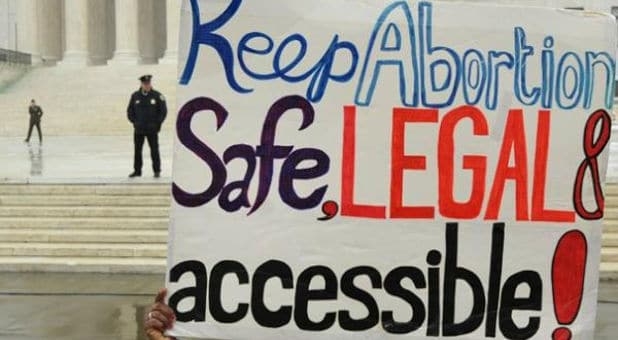 |
| Photo ourbodiesourselves |
Here is a snapshot of what is happening in some U.S. states:
MISSISSIPPI - The Supreme Court will hear a pivotal case in December in which Mississippi will defend its law banning abortions after 15 weeks of pregnancy.
Mississippi's Republican attorney general is asking the court to overturn the 1973 ruling that legalized abortion nationwide.
LOUISIANA - Lawmakers have approved a similar ban but it will not take effect before Mississippi's law is decided upon.
TEXAS – A law to ban abortions at six weeks came into effect on Sept 1, but has since been suspended following a legal challenge.
The law is among a number of "heartbeat" abortion bans enacted in Republican States seeking to prohibit terminations once a fetal heartbeat can be detected, usually at six weeks and often before a woman even realizes she is pregnant.
The Texas law also grants citizens the right to sue doctors who perform terminations beyond the cut-off mark. Abortion rights groups say 85%-90% of abortions in Texas are obtained after six weeks, meaning many clinics would likely have to shut.
In June, the state also passed a "trigger law" banning most abortions, which will come into effect if Roe v Wade is overturned.
ARKANSAS - In March, Arkansas banned all abortions except in medical emergencies, making no exceptions in cases of rape or incest. Supporters of the law hope it will force the Supreme Court to revisit Roe v Wade.
A federal judge has blocked enforcement of the ban pending a legal challenge by Planned Parenthood, the nation's largest abortion provider, and the American Civil Liberties Union.
OKLAHOMA – Republican Governor Kevin Stitt signed an outright ban on abortion except when a patient’s life is endangered in April, which is due to come into effect in November.
In anticipation of potential legal challenges, he also signed an alternative law banning abortion from six weeks, which also states that a doctor performing an abortion after this time would be guilty of homicide.
ARIZONA - Republican Governor Doug Ducey signed into law in April a measure banning abortions performed because of genetic disorders like Down's syndrome or cystic fibrosis, unless the condition is considered lethal. The law is scheduled to take effect on Sept. 29.
SOUTH DAKOTA – A measure barring abortion based on a fetus' confirmed or suspected diagnosis of Down's syndrome was signed into law in March, and went into effect on July 1.
MONTANA - The Republican-led legislature has passed several bills restricting access to abortion, including banning terminations after 20 weeks. A judge has suspended enforcement of the laws pending a legal challenge by Planned Parenthood.
NEW HAMPSHIRE – Lawmakers in June voted to ban abortion from 24 weeks, with no exception for rape, incest or fatal fetal conditions. The law, which is the state’s first bar on late-term abortion, is due to come into effect from January 2022.
SOUTH CAROLINA - Republican Governor Henry McMaster signed a law in February outlawing abortion once a fetal heartbeat is detected. The law is on hold pending a legal challenge by Planned Parenthood.
TENNESSEE - The state passed a sweeping measure in 2020, which included banning abortion as early as six weeks, and requiring patients to be told about a possibility of reversing medication abortions, which is disputed by many medical experts.
Most of the law has been blocked due to a legal challenge. However, a provision banning abortions based on a Down's syndrome diagnosis is in effect.
OHIO - A federal appeals court ruled in April that Ohio can enforce a 2017 law banning abortions when medical tests show that a fetus has Down's syndrome. Ohio also approved a bill last year requiring fetal tissue be cremated or buried.
KENTUCKY - The attorney general has asked the Supreme Court to reinstate its ban on the dilation and evacuation method, typically used in second trimester abortions. The ban was signed into law, but struck down by a court in 2019. Abortion rights advocates say it would effectively outlaw abortions after 15 weeks of pregnancy.
IDAHO – The state's governor in April signed a "trigger law" that would ban most abortions after six weeks of pregnancy and would go into effect 30 days after any U.S. appeals court upholds a fetal heartbeat abortion ban in another state.
The law would include exemptions for cases of rape, incest, or serious health impacts.
PENNSYLVANIA - In March, abortion providers lost a court challenge to a ban on the use of state Medicaid funds for terminations. They have filed an appeal with the Pennsylvania Supreme Court.
MISSOURI - A 2018 law banning abortions after eight weeks is on hold due to legal challenges.
SOURCES: Guttmacher Institute, Center for American Progress, NARAL Pro-Choice America, ACLU Reproductive Freedom Project, Kaiser Family Foundation.
Read More: Top 7 Weirdest Things in America
Amazing Facts about abortion in the US
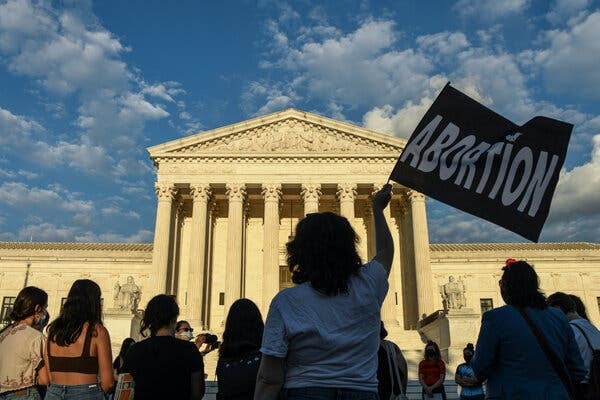 |
| Photo NY Times |
73% of Americans want abortion to remain safe and legal
The lawmakers putting these extreme restrictions on abortion access do not represent the views of most Americans.
An independent pollreleased in January 2019 found that two-thirds of Americans think abortion should be legal in “all” or “most” cases, and 73% are opposed to overturning Roe v. Wade
These new laws will cause deaths and injuries
Anti-abortion laws do not stop or reduce abortions, but they do make them dangerous.
When carried out with the assistance of a trained health-care provider in sanitary conditions, abortions are one of the safest medical procedures available. But when abortions are restricted or criminalized, people are forced to seek unsafe ways to end pregnancies.
Worldwide,an estimated five million women are hospitalized each year for treatment of abortion-related complications and about 47,000 women die.
The US has the highest maternal mortality rate of any developed nation, and states with more restrictive abortion laws already have higher rates of both infant and maternal mortality. That’s why these new laws are a recipe for disaster for women’s health.
These laws are discriminatory
People with low incomes – teenagers, people of colour, migrants and refugees – are hardest hit by abortion restrictions because it is more difficult for them to pay, travel or take time off work.
African-American women are three or four times more likely to die in pregnancy or childbirth than white women in the US, and this shameful inequality will likely be entrenched by new laws making pregnancy more dangerous.
These laws are also another blow to LGBTI people, who have suffered a sustained attack on their rights under the Trump administration. Trans people in the US already face huge barriers to accessing reproductive healthcare, and this raft of new laws will further exclude them
Trump’s anti-abortion agenda doesn’t just affect people in the US
In 2017 President Trump reinstated and expanded a policy called the “global gag rule”. This rule states that any overseas organization which receives US global health funding cannot even mention abortion as part of their counselling or education programs—even if the money for these particular programs does not come from the US.
Even if providers think that a pregnancy will put a woman’s health at risk, they cannot tell her that abortion is an option or direct her to a safe provider. A recent study found that this policy is making a broad range of services less accessible, including contraceptive services, HIV/AIDS testing and treatment, cervical cancer screening and support for survivors of gender-based violence.
The fight is not over!
None of the abortion bans passed this year has yet taken effect, and abortion is still legal in all 50 states (as of 11 June 2019).
The American Civil Liberties Union, the Planned Parenthood Action Fund and others have vowed to fight back and lawsuits have already been filed in several states.
On 31 May Planned Parenthood won a court order to keep Missouri’s only abortion clinic open on the day it was due to close. Kentucky’s “six week” bill has been temporarily blocked.
Previously, similar bills have been struck down as unconstitutional in states including Iowa and North Dakota.
In May thousands of people took part in coordinated rallies, calling on states to #stopthebans, and people all over the world continue to raise their voices in defence of reproductive rights.
Abortion Pros and Cons
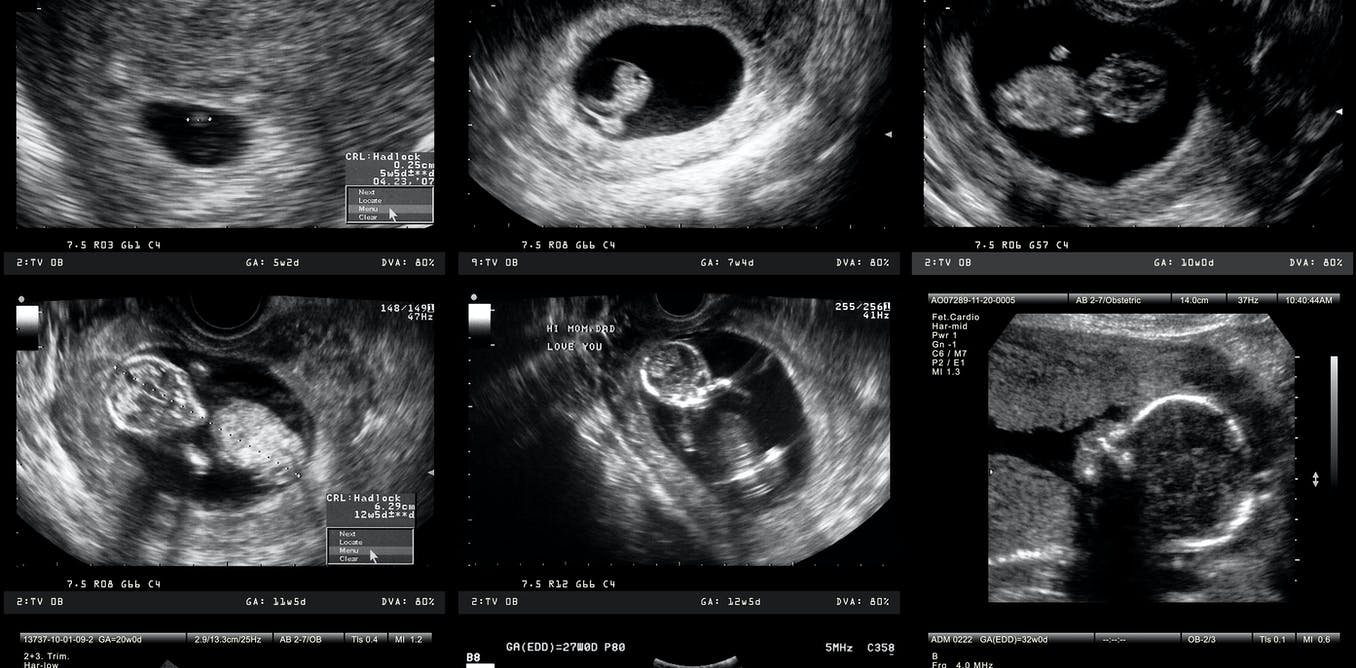 |
| Photo Shutterstock |
Pro 1
The US Supreme Court has declared abortion to be a fundamental right guaranteed by the US Constitution.
The landmark abortion case Roe v. Wade, decided on Jan. 22, 1973 in favor of abortion rights, remains the law of the land. The 7-2 decision stated that the Constitution gives “a guarantee of certain areas or zones of privacy,” and that “This right of privacy… is broad enough to encompass a woman’s decision whether or not to terminate her pregnancy.”
Pro 2
Reproductive choice empowers women by giving them control over their own bodies.
The choice over when and whether to have children is central to a woman’s independence and ability to determine her future. Former Supreme Court Justice Sandra Day O’Connor wrote in the 1992 decision in Planned Parenthood v. Casey, “The ability of women to participate equally in the economic and social life of the Nation has been facilitated by their ability to control their reproductive lives.” Supreme Court Justice Ruth Bader Ginsburg wrote in her dissenting opinion in Gonzales v. Carhart (2007) that undue restrictions on abortion infringe upon “a woman’s autonomy to determine her life’s course, and thus to enjoy equal citizenship stature.” CNN senior legal analyst Jeffrey Toobin, JD, stated that Roe v. Wade was “a landmark of what is, in the truest sense, women’s liberation.”
Pro 3
Personhood begins after a fetus becomes “viable” (able to survive outside the womb) or after birth, not at conception.
Embryos and fetuses are not independent, self-determining beings, and abortion is the termination of a pregnancy, not a baby. A person’s age is calculated from birth date, not conception, and fetuses are not counted in the US Census. The majority opinion in Roe v. Wade states that “the word ‘person,’ as used in the Fourteenth Amendment [of the US Constitution], does not include the unborn.”
Pro 4
Fetuses are incapable of feeling pain when most abortions are performed.
Con 1: Abortion is murder
The killing of an innocent human being is wrong, even if that human being has yet to be born. Unborn babies are considered human beings by the US government. The federal Unborn Victims of Violence Act, which was enacted “to protect unborn children from assault and murder,” states that under federal law, anybody intentionally killing or attempting to kill an unborn child should “be punished… for intentionally killing or attempting to kill a human being.” The act also states that an unborn child is a “member of the species homo sapiens.” At least 38 states have passed similar fetal homicide laws.
Con 2: Life begins at conception, so unborn babies are human beings with a right to life.
Upon fertilization, a human individual is created with a unique genetic identity that remains unchanged throughout his or her life. This individual has a fundamental right to life, which must be protected. Jerome Lejeune, the French geneticist who discovered the chromosome abnormality that causes Down syndrome, stated that “To accept the fact that after fertilization has taken place a new human has come into being is no longer a matter of taste or opinion… The human nature of the human being from conception to old age is not a metaphysical contention, it is plain experimental evidence.”
Con 3: Fetuses feel pain during the abortion procedure
Maureen Condic, PhD, Associate Professor of Neurobiology and Anatomy and Adjunct Associate Professor of Pediatrics at the University of Utah School of Medicine, explains that the “most primitive response to pain, the spinal reflex,” is developed by eight weeks gestation, and adds that “There is universal agreement that pain is detected by the fetus in the first trimester.”
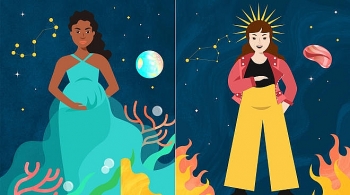 How Would You Handle to Pregnancy - According to Your Zodiac Sign? How Would You Handle to Pregnancy - According to Your Zodiac Sign? People react and handle differently to the process of pregnancy. Some see it as a challenge to conquer while others consider it the most beautiful ... |
 Pregnancy: Foods and Drinks to avoid Pregnancy: Foods and Drinks to avoid You want to eat nutritious foods when you’re pregnant, but sometimes it can be hard to know the exact good food for who is pregnant. ... |
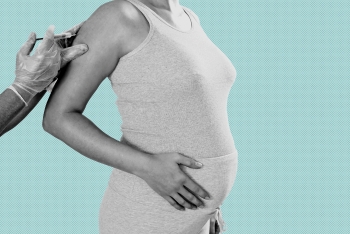 What are the needed vaccines for women before and during pregnancy? What are the needed vaccines for women before and during pregnancy? Vaccines can help protect both you and your baby from vaccine-preventable diseases. At KnowInsider, we figure out the necessary vaccines for pregnant women to protect ... |


